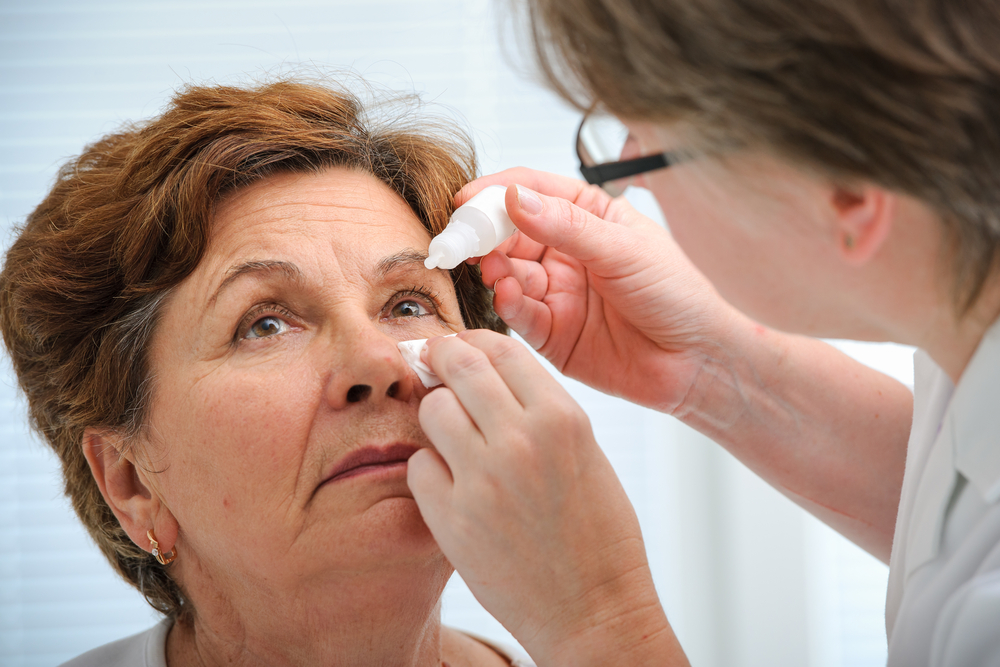What Age Does Glaucoma Typically Develop?
November 28, 2023
Are you an older adult and worried about your vision? Have you noticed decreased vision and wonder about the underlying causes? One common eye condition that can develop with age is glaucoma.
While this eye condition can also impact younger adults, the risk increases with age. How do you know if you have glaucoma, and what is it exactly?
Keep reading to learn more about glaucoma, including the most common age range for glaucoma!
 What Is Glaucoma?
What Is Glaucoma?
Glaucoma is actually various eye conditions related to the optic nerve. Your optic nerve is responsible for sending what your eyes see to the brain, making the optic nerve an essential component of healthy vision.
As glaucoma damages the optic nerve, it can create blind spots or blurry vision. Optic nerve damage can have many underlying causes, but one of the most typical is high pressure in the eye.
Pressure might increase because of a buildup of fluids or issues with the drainage system in your eyes. There are multiple types of glaucoma, and they present differently depending on type and severity.
What Is The Most Common Age To Develop Glaucoma?
Glaucoma is a major concern for adults over forty. While people of any age, including infants and children, can develop glaucoma, the risk is much higher the older you get.
Those over forty should take special care to see an eye doctor for glaucoma screenings. For adults older than sixty, glaucoma is the leading cause of blindness.
So, once you reach sixty, regular eye exams are important so your eye doctor can detect any eye conditions, including glaucoma, early. Because the most common type of glaucoma, open-angle, often doesn’t have symptoms at first, eye exams are key to preserving your vision.
Are There Any Other Factors That Increase The Risk Of Glaucoma?
While age is a significant risk factor for glaucoma, there are some other components that make you more likely to develop this eye condition.
These include:
- If you have a family history of glaucoma, as there is a genetic element
- If you have some other medical conditions, including high blood pressure and diabetes.
- If you have had previous eye injuries
- If you’ve undergone eye surgeries
- If you have taken certain medications, including steroids, for an extended period of time
If you have any or multiple of these risk factors, it’s even more important to ask your doctor about glaucoma and receive regular eye exams.
Do you have risk factors for glaucoma?
Schedule an appointment today
What Are Common Symptoms Of Glaucoma?
A tricky thing about glaucoma is that there are often few or no symptoms. Depending on the type of glaucoma, you might not notice any signs in the beginning stages.
This gradual impact on your vision makes it difficult to detect a change until the condition has progressed significantly. However, it’s still useful to know some of the symptoms of the different types of glaucoma.
 Open-angle Glaucoma
Open-angle Glaucoma
Open-angle glaucoma occurs when the eye drainage systems don’t work properly. Open-angle glaucoma typically causes gradual vision changes that may not be noticeable.
As this condition worsens, you’ll notice blind spots in your peripheral vision and, eventually, in your central vision.
Acute Angle-Closure Glaucoma
Acute angle-closure glaucoma happens when the iris bulges and blocks the eye drainage system. This type of glaucoma can occur suddenly or gradually.
Symptoms of this kind of glaucoma are often more noticeable and can include headache, eye pain, nausea, and blurred vision.
Normal-Tension Glaucoma
This type of glaucoma occurs with eye pressure that is within the normal range, and the exact underlying causes are still unknown. There are very few early symptoms, but eventually, normal-tension glaucoma causes blurry vision and permanent vision loss.
Pigmentary Glaucoma
With pigmentary glaucoma, small granules of pigment from your iris cause blockages in the drainage channels of your eye, which can increase eye pressure. The signs include halos around lights and blurry vision.
Childhood Glaucoma
Some babies and children develop glaucoma early in life because of an injury or another medical condition. It can be difficult to spot symptoms in an infant, but you should look out for a cloudy eye, excessive blinking, and tears when the baby isn’t crying.
Other signs of glaucoma in children include blurry vision and headaches.
Are you experiencing symptoms of glaucoma? Schedule an appointment at Arlington Eye Center to ensure you're not at risk for permanent vision loss.
How Is Glaucoma Treated?
Glaucoma treatment varies depending on the type and how far the condition has progressed. Usually, your eye doctor will start with medications like eye drops, but for more severe cases of glaucoma, treatments such as laser procedures or surgery are necessary.
It’s best to get treatment as soon as possible. While treating glaucoma won’t reverse any damage, it will keep your vision from worsening.
It's best to catch and treat glaucoma early to keep your vision sharp.
Can You Prevent Glaucoma?
In many cases, glaucoma is not preventable. The best way to avoid vision loss from glaucoma is to catch this eye condition early.
Here are some of the best ways to prevent vision loss from glaucoma:
See Your Eye Doctor
With regular eye exams, it’s possible to catch glaucoma while it’s still in the beginning stages. The American Academy of Ophthalmology suggests eye exams every two years for those about forty and around every year for those above fifty-five.
It’s also wise to see an eye doctor more often if you have conditions like diabetes or have increased risk factors. 
Protect Your Eyes
Eye injuries can cause glaucoma and other eye problems. Always wear protective gear when playing sports or using tools.
Use Eye Drops
If you are diagnosed with glaucoma and prescribed eye drops, it is essential to use these as instructed. Eye drops for glaucoma can keep the condition from progressing.
Do you want to learn if you are at risk of developing glaucoma? Schedule an appointment at Arlington Eye Center in Arlington, VA, today!



